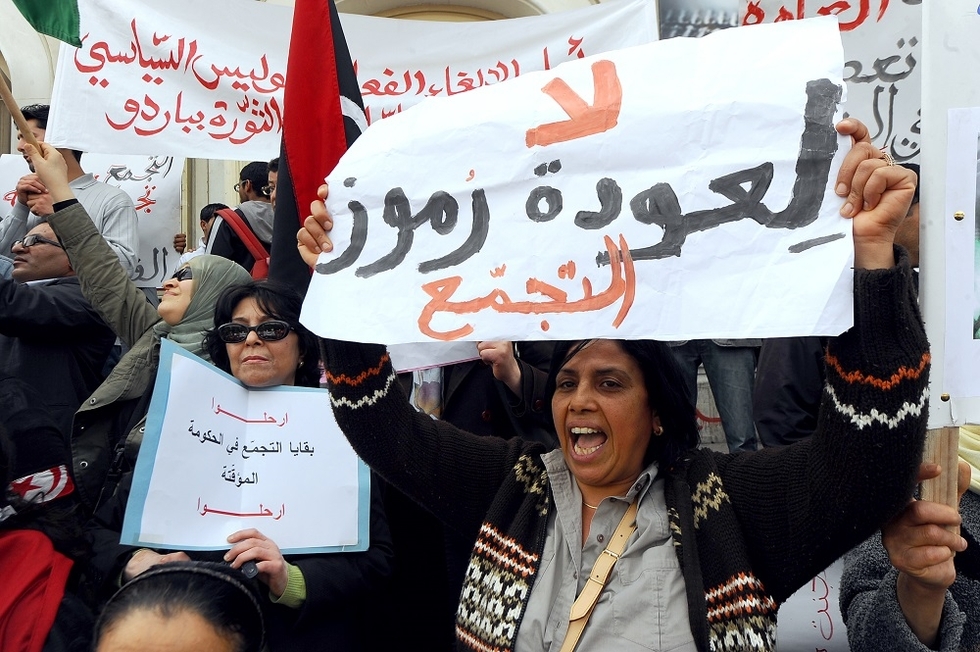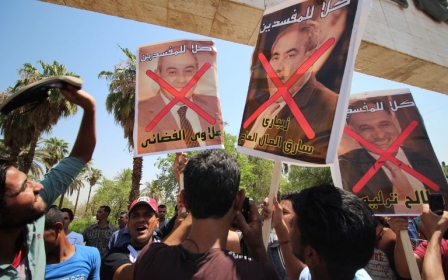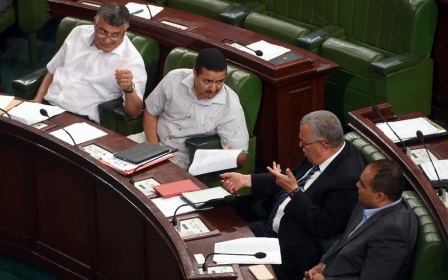The Tunisian exception: Policymakers favour spread of corruption

Economic growth is in decline in Tunisia while corruption is on the rise. Embedded habits of nepotism, cronyism and graft are increasingly endemic to society and the state, making doing business, big or small, systemically dependent on the “privilege” of yielding to corrupt rules.
Meanwhile, near-sighted policy making by the current political leadership renders the situation even more challenging: President Beji Caid Essebsi has just proposed a bill on “economic and financial reconciliation” to spare a list of corrupt businessmen and former government officials responsible for the above-mentioned habits from being called to account.
Ratified on 14 July by the government and passed on to the parliament for approval, the bill suggests three main regulations:
1. Ending legal proceedings and dropping sanctions against public officials for acts related to white collar crimes.
2. Creating a “reconciliation committee” within the prime ministry to clear charges and stop proceedings against businessmen who have been or may be convicted in a court.
3. Abrogating the provisions of the Transitional Justice Law related to white-collar crimes.
Essebsi and his presidential team touted the bill as being a means of “consolidating Transitional Justice, providing a proper environment for investment, boosting the economy and increasing trust in state institutions” - a claim that is anachronistic at best, and downright twisted in substance.
First, the bill does not consolidate “transitional justice” - judicial and non-judicial measures that some countries, including Tunisia, have implemented to address the legacies of human rights abuses; rather, it renders it inefficient.
The last of the above-mentioned regulations limits the capacity of the Truth and Dignity Commission (TDC) - the institution in charge of implementing the transitional justice process - to thoroughly probe abuses of power committed under the dictatorial regimes of Habib Bourguiba and Zine el-Abidine Ben Ali, including human rights violations and economic corruption.
This bill reduces the TDC's prerogative to check and help dismantle the long-standing corrupt workings of the former regimes. Worse, it breaches article 148 of the constitution, which stipulates that the state is committed to respect the transitional justice process in all its aspects and deadlines. Ironically, Essebsi is the first official who is constitutionally mandated to protect the constitution.
Second, the bill does not provide a proper environment for investment, it further infects it. Setting loose the officials and businessmen in question won’t help reduce the increasing amount of fraudulent economic activity; instead, it gives them legal and moral legitimacy.
It gives legitimacy to the growing rate of “informal payments” paid to get things done - already amounting to $230mn in 2013 (2.7 percent of the government’s total annual revenue), and topping similar payments in Russia, Egypt, Morocco, Central Asian and southeast European countries.
Third, the bill is unlikely to promote “economic interest” per se, as much as it will firmly protect corrupt clan-interests of old-regime cronies.
The cronies in question comprise a list of 114 of the Ben Ali/ Trabelsi (his wife’s maiden name) family members who amassed vast wealth through controlling 21 percent of all private sector profits.
They also include a second list of 120 businessmen whose wealth and power was accrued by cooperating with members of the first list.
Banning judicial inspection into the businesses and resources of these cronies will conveniently reintegrate their corrupt capital into the business cycle and reaffirm the position of their racketeering networks.
Fourth, the bill doesn’t increase trust in state institutions, it damages it. The site of top-brass officials breaching the constitution, promoting impunity and tolerating large-scale crimes does not raise feelings of trust, especially among prospective investors who might consider coming to Tunisia, which has struggled for four years to attract them.
All over the globe, widespread corruption generates social injustices and erodes trust in the state. According to Transparency International’s 2013 global survey on corruption "bribery not only costs the individual paying the bribe - it also undermines the efficient and equitable allocation of resources, people's respect for the rule of law and the overall integrity of a society”.
The OECD believes that “corruption is the primary threat to good governance, sustainable economic development, democratic process and fair business practices”.
"The impact of corruption,” says OECD secretary-general Angel Gurria, “goes far beyond the specific misbehaviour of the actors involved. Its repercussions sweep across entire populations. A one million euro bribe can rapidly amount to a one hundred million euro loss in a poor country - through de-railed development plans and incoherent investment decisions.”
Advocates of Tunisia’s racketeering networks often disengage from meaningful discussions on the purpose of the bill at hand. Whenever dragged into them they tend to brandish lofty headings about the need to “look to the future”, and respect the “national”, or “economic interest” - vaguely evoking the financial resources that will be at immediate disposal of the state treasury following the proposed "reconciliation".
For his part, Essebsi claims he is “confident that many Tunisians [those concerned with the amnesty], whether businessmen or not businessmen, have the capacity to participate in Tunisian life”.
In reality, unless they take Essebsi at word, nothing concrete can bind these “capable” Tunisians to make the sort of contribution that would change the economic situation. Such arguments are sheer speculation.
If it’s not a matter of promoting “economic interest” or “consolidating the process of Transitional Justice” then, what seems to urge Essebsi to propose this bill, and on his very first cabinet meeting?
To many Tunisians the answer is obvious. Essebsi and his Nidaa Tounes party are indebted to the financiers who have sponsored their way up to the forefront of the political spectrum. It is time to pay them back. Sihem Ben Sedrine, the president of the TDC, specifically points at “lobbies endeavouring to free the corrupt from going through any kind of inquiry".
Part of the answer is also furnished through Essebsi’s remarks during the cabinet meeting, which made the proposed bill sound more like a resolution to resolving a personal issue being fetched by an official with a surplus of confidence in his executive power: “The prison” he said, “what is it good for? The country needs everyone … above all, those who have money.”
But he did not elaborate on how that money was earned or will possibly be used. He continued: “I see top officials who served Tunisia being dragged to prisons, although they did nothing! What did they do? They just lived in a corrupt system.”
Here he assumes that these officials operated independently from this so-called “system” and served … perhaps some proudly democratic and prosperous “Tunisia”? In what way did they exactly do that? He didn’t explain.
To add insult to injury, Essebsi brought up the case of an official who could potentially benefit from the bill: “There was someone who worked with us [in the prime ministry]. Wallaah,” he said, "the man looked like an angel. But they chased him down and struck him with two years of suspended sentence. I say, we need to leave these functionaries alone."
In effect, what is at play here is the private appetite of the highest-ranking official in Tunisia put in balance against real economic interests, the supremacy of the law and the independence of the magistrate. These comments, not only demonstrate Mr Essebsi’s hesitation to commit to the spirit of institutional democracy and the rule of law; they also betray his capability to advance policies that favour the spread of corruption.
Whether caused by indebtedness to corrupt capital or by a serious lack of imagination, the present poor status of Tunisia’s policymaking certainly corrodes the prospect of development in Tunisia.
Likewise, it suggests that the governing elites are in fact less dispositioned to looking ahead to the future than running away from the past. This is the existential challenge facing Tunisia's democracy.
- Omar Belhaj Salah is a junior researcher on politics and history at the Free University of Berlin.
The views expressed in this article belong to the author and do not necessarily reflect the editorial policy of Middle East Eye.
Photo Credit: A woman holds a poster reading 'Not return of RCD! Ben Ali's former party' as she demonstrates with thousands of Tunisian on 24 April.
Middle East Eye propose une couverture et une analyse indépendantes et incomparables du Moyen-Orient, de l’Afrique du Nord et d’autres régions du monde. Pour en savoir plus sur la reprise de ce contenu et les frais qui s’appliquent, veuillez remplir ce formulaire [en anglais]. Pour en savoir plus sur MEE, cliquez ici [en anglais].





